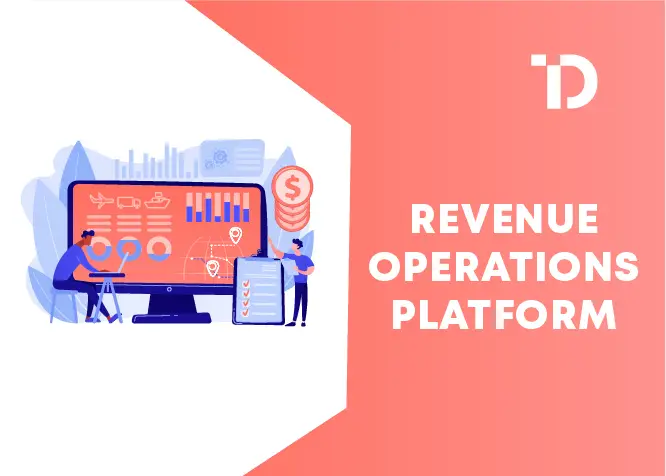Introduction to Revenue Operations
The business environment constantly evolves, and new methodologies emerge to streamline success. One such paradigm gaining significant traction in the digital age is Revenue Operations (RevOps). DevOps represents a holistic strategy integrating sales, marketing, and customer service functions into a coherent, collaborative entity working towards shared revenue goals. Chief among the benefits of adopting a revenue operations platform are the elimination of departmental silos, improved operational efficiency, and the ability to make data-driven decisions that escalate revenue growth systematically. As businesses jostle for supremacy in a crowded marketplace, the ones with a fine-tuned DevOps framework are discovering the potency and competitive advantage it brings.
Critical Components of a Successful Revenue Operations Strategy
Delving deeper into the anatomy of a successful RevOps strategy, we uncover several vital components that are instrumental for businesses looking to capitalize on this approach. Foremost is adopting technology solutions that automate routine tasks, enabling teams to dedicate more bandwidth to strategic pursuits. Decision-making is considerably enhanced through rigorous data analysis, generating insights that lead to refined sales tactics and marketing campaigns. As the interplay among sales, marketing, and customer success teams is indispensable for a smooth RevOps machinery, fostering a culture of cross-functional collaboration is equally crucial. By doing so, businesses avoid the pitfalls of fragmented operations, ensuring that every department’s activities align with overarching revenue objectives.
Trends Shaping the Future of Revenue Operations
The landscape of RevOps is evolving rapidly and is shaped by the large-scale adoption of emerging technologies. Artificial Intelligence (AI) and machine learning are notable changemakers, enabling unprecedented data analysis, lead scoring, and predictive modeling, bolstering revenue forecasting accuracy. Matching pace with the innovation curve is critical for businesses pursuing RevOps excellence. Moreover, as highlighted by Forbes, understanding the profound influence of CDPs, which orchestrate data from multiple streams to provide a single view of the customer, is becoming indispensable for hyper-targeting and heightened customer engagement, critical drivers of DevOps success.
Measuring the Impact of Revenue Operations on Business Performance
Implementing a DevOps model is not a mere structural change; it’s about generating tangible results that can be quantified and evaluated. Metrics such as customer acquisition costs, lifetime value, conversion rates, and sales cycle lengths become pivotal barometers of success, objectively showcasing the DevOps impact. Companies can refine their strategies through data-driven assessment, optimizing processes that deliver the most significant financial outcomes. Through this relentless pursuit of operational efficiency, businesses witness a marked improvement in their bottom line, rendering DevOps not a cost but a profit center.
The Role of Culture in Revenue Operations Success
The DNA of RevOps transcends strategies and analytics; it is deeply woven into the cultural fabric of an organization. A corporate culture that emphasizes a unified approach toward revenue goals is one where RevOps thrives. Cultivating such an ethos requires concerted efforts in cross-departmental communication, transparency, and the breaking down of siloed mentalities. The rewards for this cultural investment are bountiful, manifesting in seamless workflows, team spirit, and collective problem-solving that steer companies toward their revenue vision.
Driving Customer Success with Revenue Operations
At its heart, DevOps is customer-centric, aiming to enhance the end-to-end customer experience and forge more robust, lasting relationships that augment customer lifetime value. By aligning the intricacies of RevOps with customer success frameworks, businesses foster loyalty and encourage recurring revenue streams. Data insights derived from robust DevOps practices provide the foresight to anticipate customer needs and tailor services accordingly. As posited by Business2Community, this shift toward an enlightened customer focus will be a significant differentiator for businesses navigating an ever-competitive landscape.
Integrating Revenue Operations into an Existing Business Structure
Integrating a RevOps framework within an existing business infrastructure demands a systematic approach and unwavering commitment at all organizational levels. It begins with an articulate vision from leadership and is carried through by comprehensive training programs. Communicating the benefits and advocating for a step-by-step transition plan can win the hearts and minds of the workforce, fostering a collaborative spirit. Selecting the right technology stack, like enhancing the business toolbelt with an advanced revenue operations platform, is fundamental in ensuring the operational shift is aspirational and firmly rooted in practicality.
The Future of Work: Revenue Operations as a Strategic Partner
Looking to the horizon, the inclusion of RevOps in the corporate pantheon signals a watershed moment for strategic business operations. The intersection of finance, marketing, and sales within the RevOps function means that this powerhouse has secured a seat at the executive table, directing immediate revenue generation efforts and shaping long-term business strategies. As technology advances and customer expectations evolve, the RevOps domain will undoubtedly expand, playing a pivotal role in guiding businesses through the complexities of modern commerce.
Conclusion: Embracing Revenue Operations for Sustained Business Success
In synthesizing the diverse pieces of the DevOps puzzle, it becomes clear that this approach is not simply a trend but a transformative shift in how businesses operate and grow. By embracing a holistic, cross-functional methodology that places equal emphasis on technology, culture, and customer satisfaction, companies can harness the true power of DevOps. As we propel into the next iteration of the digital era, the businesses that understand and implement a comprehensive RevOps strategy will be the ones to watch, flourishing with sustainable efficiency and celebrated prosperity.
Related Articles:
The Future of Contract Management: Integrating AI and Contract Intelligence
Everything You Need To Know About Running a Successful Business
